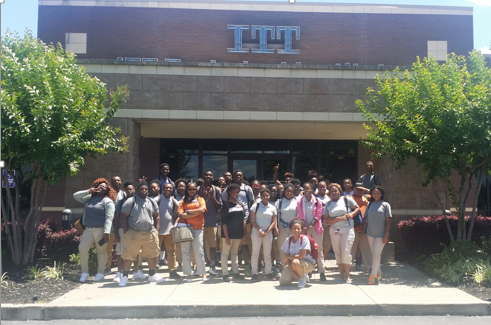 ITT Tech/Facebook
ITT Tech/Facebook
A 2016 photo from ITT Tech’s Cordvoa campus.
Did you borrow money to attend ITT Tech, the failed, for-profit college? Debt relief may be on the way.
ITT filed bankruptcy in 2016 after investigations by state attorneys general and the U.S. Department of Education. That investigation restricted ITT’s access to federal student aid.
 ITT Tech/Facebook
ITT Tech/Facebook
Tennessee Attorney General Herbert Slatery said Wednesday a settlement deal will bring $6 million in debt relief for 699 former ITT Tech students in Tennessee.
That settlement is part of a national deal with 42 states and the District of Columbia totaling more than $168 million for more than 18,000 former ITT students.
The settlement is between the states and a company called Student CU Connect CUSO (CUSO). It offered about $189 million in loans to finance students’ tuition at ITT Tech between 2009 and 2011.
“Hundreds of Tennessee students who were simply trying to further their education at ITT Tech were harmed by CUSO,” Slatery said. “This settlement holds CUSO accountable for its abusive lending practices and provides relief to those who attended ITT Tech and incurred debts for a questionable education that they could not repay nor discharge.”
[pullquote-1] The Attorneys General alleged that ITT, with CUSO’s knowledge, offered students temporary credit when they enrolled to cover the gap in tuition between federal student aid and the full cost of the education. That credit was to be repaid before the student’s next academic year, “although ITT and CUSO knew or should have known that most students would not be able to repay the [temporary credit] when it became due,” reads a statement.

Tennessee Attorney General Herbert Slatery
Students complained that they thought the temporary credit was like a federal loan and would not be due until six months after they graduated. When it became due, though, ITT ”pressured and coerced students into accepting loans” from CUSO, which for many students had high interest rates, far above rates for federal loans.
“Pressure tactics used by ITT included pulling students out of class and threatening to expel them if they did not accept the loan terms,” reads a statement. “Because students were left with the choice of dropping out and losing any benefit of the credits they had earned – ITT’s credits would not transfer to most other schools – most students enrolled in the CUSO loans.”
Neither ITT nor CUSO told students what the true cost of repayment for the temporary credit would be until after it was converted to a loan. The default rate on the CUSO loans was “extremely high,” about 90 percent, “due to both the high cost of the loans as well as the lack of success ITT graduates had getting jobs that earned enough to make repayment feasible. The defaulted loans continue to affect students’ credit ratings and are usually not dischargeable in bankruptcy.”
CUSO won’t try to collect on the outstanding loans anymore. It will, instead, send notices to borrowers that the debt is cancelled and so are the automatic payments. The company will also update borrower information with credit reporting agencies.